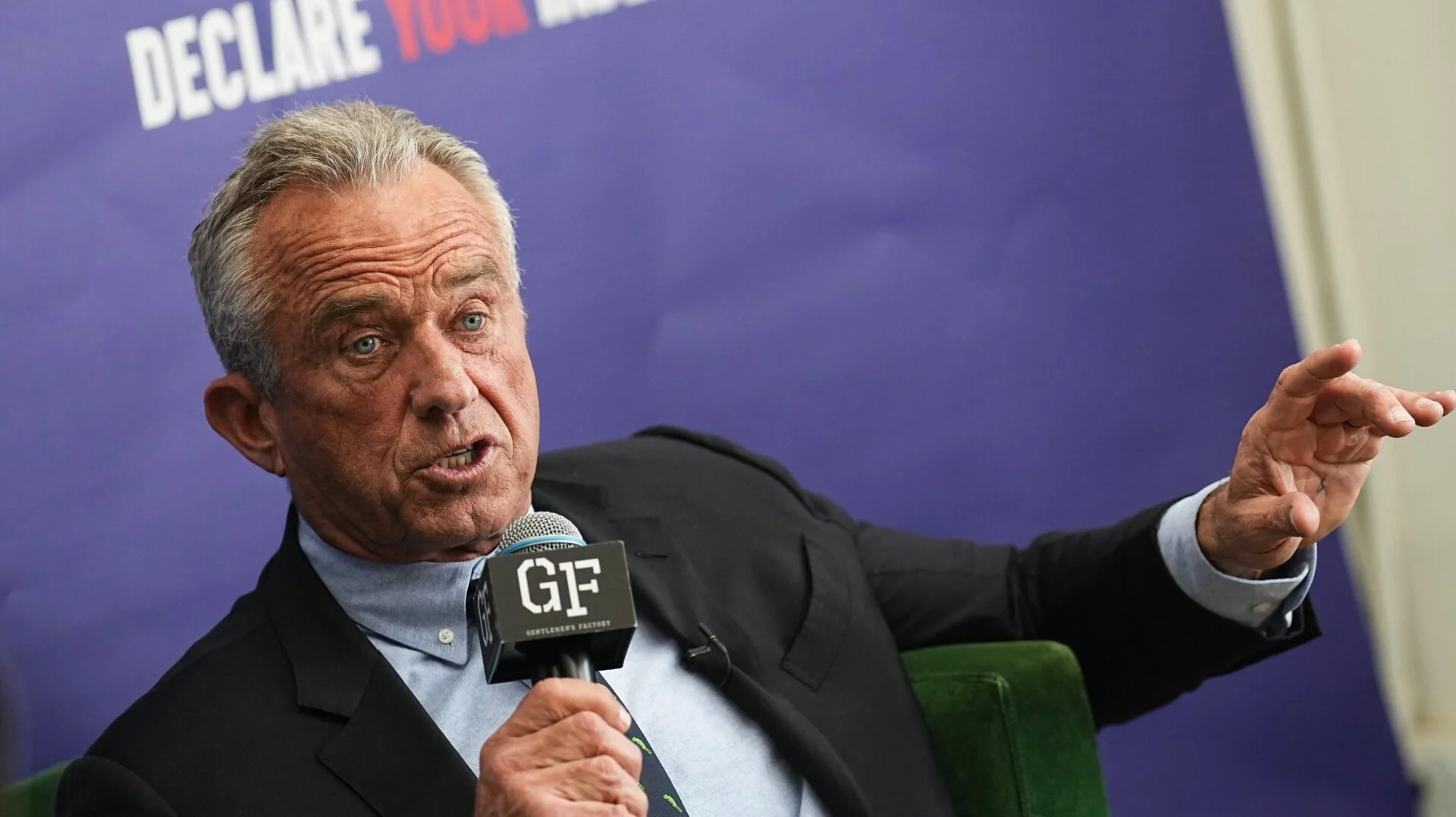Kennedy’s plan to tackle the United States’ devastating fentanyl and overdose crisis, proposing a sprawling new system of camps or farms where people experiencing addiction would be sent to recover.
by Ava Lowe
Editor-in-Chief

Photo of Robert F. Kennedy speaking about the rehabilitation centers he wishes to build.
President Donald Trump’s nominee to lead the Department of Health and Human Services, Robert F. Kennedy Jr, has announced his plan to create rehab “farms” for heroin and other serious drug addicts to safely recover. Some addiction activists are praising his plan of action, while others are extremely skeptical of his efforts.
Kennedy himself is a recovering heroin addict. In an interview with Lex Fridman he states, “During that time, when you’re an addict, you’re living against conscience… and you kind of push God to the peripheries of your life.” Kennedy’s plan for these rehab farms is to base them off a similar rehabilitation program in Italy called The San Patrignano Facility, which has faced a lot of backlash. According to Kennedy’s plan, outlined in interviews and social media posts, Americans experiencing addiction would go to San Patrignano-style camps voluntarily, or they could be pressured or coerced into accepting care, with a threat of incarceration for those who refuse. In addition, the San Patrignano program has been deemed controversial and was featured in a Netflix documentary released in 2020 that included images of people with addiction allegedly being held in shackles or confined in cages. The farm’s current leaders have said the documentary was “biased and unfair” (NPR.org) Kennedy stated, “I’m going to build these rehab centers all over the country, these healing camps where people can go, where our children can go and find themselves again.” (NPR.org)

Photo of San Patrignano facility and participants.
Another key part of Kennedy’s plan that is facing an abundance of retaliation is that these “farms” are not medical or science based, given that Kennedy has no background in drug research. Maia Szalavitz, a neuroscience journalist and activist stated, “It really is great to include people who have personal experience of something like, say, addiction in policymaking. But you don’t become an addiction expert simply because you’re someone who struggled with addiction,” The San Patrignano facilities don’t include science-based medical care, including opioid treatment medications. “You have to engage with the research literature. You have to understand more beyond your own narrow anecdote. Otherwise you’re going to wind up doing harm to people.”
With this, Kennedy’s approach to addiction care focuses more on the morality of recovery, rather than modern medication. “He clearly cares about addicted people,” said Keith Humphreys, a leading national drug policy researcher at Stanford University. “But in terms of the plans he’s articulated, I have real doubts about them.” (NPR.org) As of now, Kennedy’s plans for these rehabilitation farms do not include any modern medicine facilities that offer medical treatments for those facing severe addiction. The vast majority of researchers, doctors and front-line addiction treatment workers agree that scientific data shows medications like buprenorphine, methadone and naloxone are game changers when it comes to treating the deadliest street drugs, including fentanyl and heroin. However, the double edged sword remains in this conundrum due to the argument that treating drug addiction with highly addictive prescription drugs is more so a bandaid than a healing opportunity. Kennedy, who has studied law and political science, not health care, before becoming an activist on subjects ranging from pharmaceuticals and vaccines to the American diet, has remained silent on the topic of science-based medical treatments for opioid addiction.
None of these plans are set in stone, however he speaks of the plans highly and is planning to start construction in the near future.
